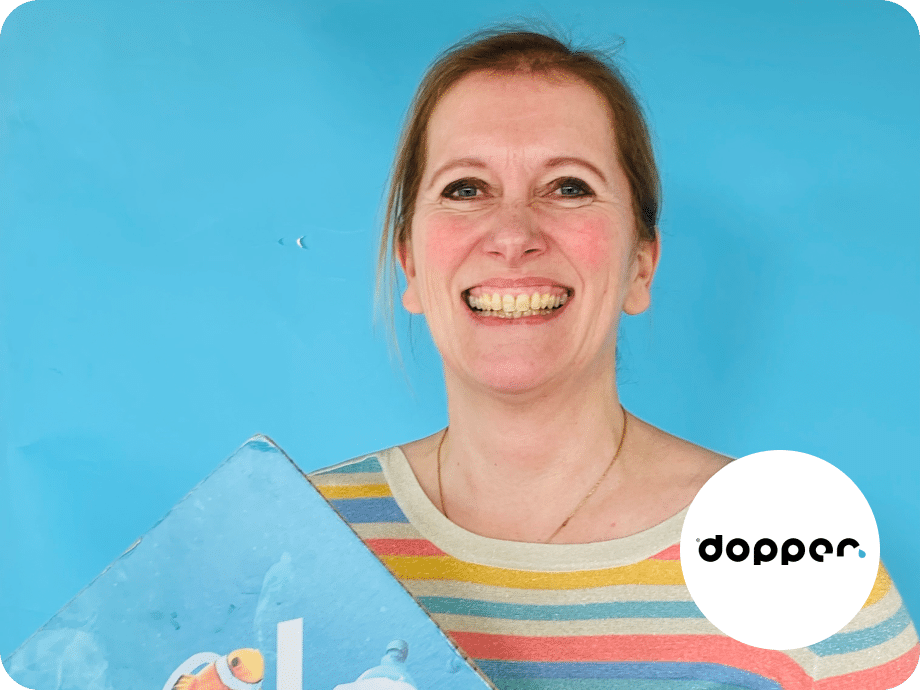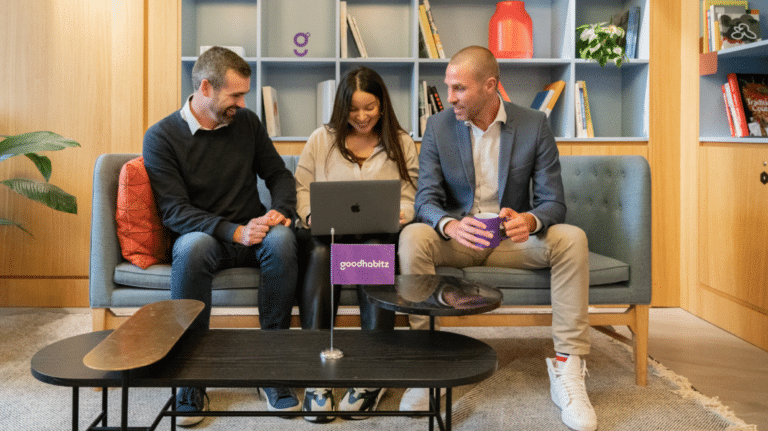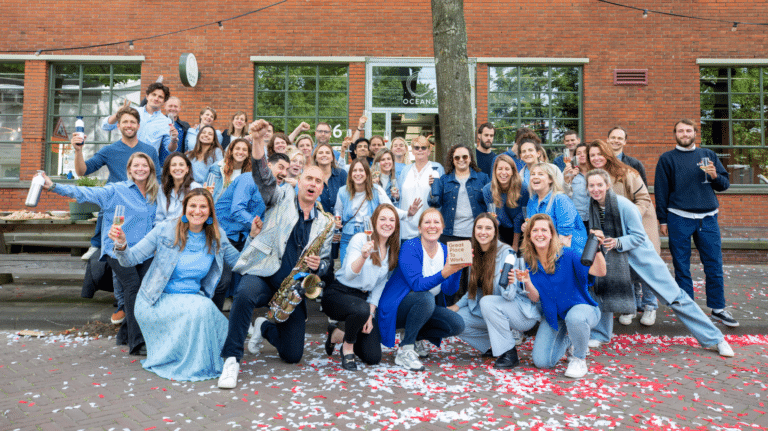How did you hear about OpenUp?
It was somewhere this year, I was talking about it with a colleague as we wanted to broaden the concept of our “Dopper Fit”. This is an initiative that we offer to encourage employees to take care of their physical health as well as their mental health. However, mental health is becoming more and more important within the workplace. This is why, as employers, we decided to offer more.
What was the first time you thought about providing our service to your employees?
I would say we were immediately attracted by its ease of reach, use and understanding. OpenUp is really accessible and affordable. We had some conversations with the team about it and that’s how we got started. We also looked at other platforms, but OpenUp was the winner for us, also because of the many languages offered. We are an international company, and we wanted to make sure everyone could benefit from it. Reaching out for support in the language that you feel comfortable in can really make a difference.
What were the challenges you were trying to solve when you chose to partner with OpenUp?
There was not a specific challenge. Rather, we realised more and more the relationship between employees’ mental health and how they feel and perform.
To give you a more specific example: we are on an ambitious mission at Dopper. We want to ban single-use plastic water bottles from the world. And that means that there’s always so much to do. On one side, the beauty of this is that you work because you feel it with your heart. It’s not just a job. On the other side, I think that also gives a little bit of pressure because you feel you can always do more. We had many conversations about this issue with our CEO Virginia and decided to make a further step forward in the mental well-being of our teams. Those were the first steps on the road to here.
Is mental health discussed openly at your company and what is the feeling towards mental health?
We definitely talk about it. There is space to let your colleagues know how you feel and what you are going through. We also have a lot of people in the team who like to talk and reflect on how things are working. So, overall, there is an open culture: mental health is not a topic that we are afraid of. Of course, there is always more that can be done, so extra help to introduce the conversation is still very welcome.
In general, how does your company work towards ensuring the well-being of its employees?
Next to OpenUp, we offer a personal education budget, which each employee can spend on psychologists and coaches or other forms of support, for example courses and trainings. Every three months we run a performance development plan that touches on different topics. It includes questions about how things are going, what are the ambitions and if the employee feels supported enough. We also have what we call a “talent house”, which includes a yearly assessment to see how everyone is doing in their role. In addition, we take part in the Great Place to Work survey every year. And we do our own engagement survey twice a year. That also provides us with useful feedback to improve.
We are continuously working on it, and we will continue to do so. I think it is fundamental that we as management show the team that we want to take care of their well-being and that we aim to solve any problems that may arise.
How did you launch OpenUp with your employees?
This is a nice story! For the first time last year, in June we had an ‘inspirational week.’ The idea behind it was to pause for a moment the daily working routine and give space to motivation and connections. The whole week was about looking after yourself and getting inspiration. During this time, all the teams were asked to go to an inspirational place and take part in sessions with cards and questions. Some teams went to the beach, some to a park, and others to a nice cafe. And that is also when we launched OpenUp. It was like the cherry on top of the week! After we launched it, we received a lot of positive messages. It was an incredibly rewarding feeling.
Did you get any feedback from your employees since you offered OpenUp services?
Unfortunately, I don’t have the chance to speak to all of them personally, but I see the numbers. And also some colleagues came up directly to me saying they were very happy with the help they received. I genuinely love hearing that someone had a conversation with OpenUp. I had mine too this morning! It was planned in my agenda and I thought this could also be a way to encourage people to be open about it. Of course, they don’t have to, but I think that even just seeing your colleagues saying: “sorry, I have to go, I have a meeting with OpenUp” really helps in normalising the conversation about mental health. That’s also why I reached out to OpenUp myself. I struggle with things too and it was very helpful to talk about these with a psychologist. Furthermore, this allows me to share my experience and motivate others to give it a try, should they feel the need.








